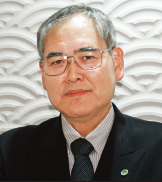Mr. Junichi Suzuki, Managing Director, Hitachi-NeST Control Systems Pvt. Ltd.

Hitachi has been co-operating with NeST for over 16 years in the field of power plant engineering whereby Hitachi trained and utilized NeST resources for product development, engineering services for projects in Japan and outside Japan. This relationship culminated as a joint venture (JV) when Hitachi decided to expand its control systems offering outside Japan. The main objective of the alliance is to contribute to the social infrastructure business in India by leveraging on Hitachi’s cutting-edge technology, domain knowledge with strong SFO local manufacturing skills so that suitable local products can be developed.
Control systems for the entire energy spectrum from power generation, transmission and distribution will be our focus. Besides this, systems for train, water and sewage and other social infrastructure business will also be offered. We plan to closely work with BGR Energy Systems Limited in the field of boilers, turbines and generators for thermal power plants, in order to enhance customer satisfaction.The company will also supply systems for transmission and distribution and other social infrastructure projects.
Hitachi has been focusing on social infrastructure on a very large scale. In that domain, power is a very critical component. We expect India to add 100 GW in the next 5 years. We would like to be a part of this ambitious plan for India. We are targeting sales of approximately Rs 1.5 billion (2.6 billion yen) in the fiscal year ending March 2015.